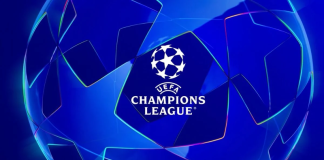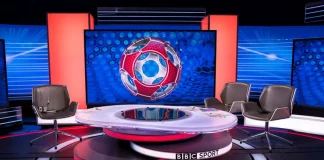
The beautiful game of soccer, known as football outside North America, is more than just a sport. It is a spectacle, a passion, and for many nations, a source of immense pride. Throughout history, soccer matches have often paralleled political events, shaped national narratives, and even influenced diplomatic relations between countries. For some countries playing with their opponent can even mean hitting the jackpot like at hell spin casino. This phenomenon, termed “soccer diplomacy”, underscores the sport’s significance as a tool for dialogue, propaganda, and even tension among nations. In this article, we’ll delve into the intricate interplay between soccer and diplomacy, focusing on how international matches can influence relations between countries.
Historical Context: Soccer as a Diplomatic Tool
Soccer has historically been leveraged as a means to foster dialogue or advance political objectives. During the Cold War, matches between the Soviet Union and Western countries were viewed as proxies for geopolitical power plays. When the US played against the USSR in 1958, the match wasn’t just a game – it represented competing ideologies.
Likewise, during the 1970 World Cup qualifiers, El Salvador and Honduras clashed in what is now known as the ‘Football War’. Tensions between the two nations were already high due to land and immigration disputes, but a series of football matches ignited a brief yet intense conflict.
Building Bridges: Soccer’s Role in Diplomatic Rapprochement
One of the most significant examples of soccer diplomacy in action was the 1998 World Cup. Iran and the USA, two nations with a troubled history of diplomatic ties, faced off on the field. Despite the political differences, both teams showed respect for each other, exchanging gifts and taking joint photos before the match. This event is remembered as a symbolic gesture of peace between two countries at odds.
Similarly, in 2008, an Armenian-Turkish rapprochement was catalyzed by a soccer match. The Turkish President visited Armenia for a World Cup qualifier, marking the first such visit in modern history. This led to further diplomatic discussions and a thaw in their historically chilly relationship.
Amplifying Tensions: The Double-Edged Sword
While soccer can bridge divides, it can also amplify existing tensions. The rivalry between countries can transform the pitch into a battleground, with fans often bearing political banners and chanting nationalistic slogans.
Matches between Serbia and Albania are particularly tense due to longstanding disputes over the Kosovo region. In 2014, a match between the two nations was abandoned after a drone carrying an Albanian nationalist banner flew over the stadium, sparking violent confrontations.
Similarly, matches between Israel and Muslim-majority nations often carry heavy political weight. These games are not just about winning but proving a point on a larger political stage.
Soft Power and Propaganda: Shaping National Image
Countries also use soccer as a means of projecting soft power. Hosting international tournaments, such as the World Cup or the Olympics, allows nations to showcase themselves on the global stage. The 2010 World Cup in South Africa, for instance, was an opportunity for the nation to present a unified and rejuvenated post-apartheid identity.
However, this can be a double-edged sword. While nations aim to project a positive image, issues such as human rights abuses or political corruption can come to the forefront. The 2014 World Cup in Brazil and the 2022 World Cup in Qatar both faced criticisms over issues ranging from infrastructure spending to worker rights.
In conclusion, the interplay between soccer and diplomacy is a testament to the sport’s global influence. While the ultimate aim of the game is to score goals and win matches, the ramifications of these matches can ripple through the political landscapes of countries. Whether used as a tool for building bridges or amplifying tensions, soccer diplomacy underscores the sport’s role as a powerful catalyst in international relations. As global politics continue to evolve, soccer will undoubtedly remain at the forefront of diplomatic dialogues and disputes.




